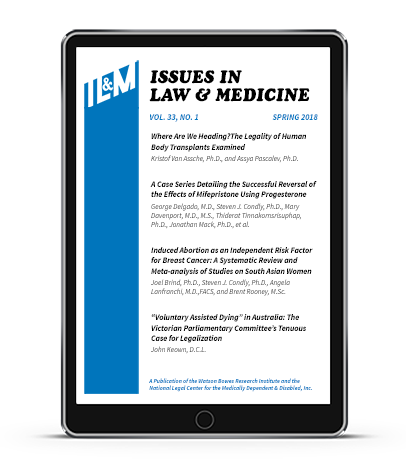 A study that claimed a highly controversial “abortion reversal” method was effective — and which was temporarily removed from a journal’s site — has been republished.
A study that claimed a highly controversial “abortion reversal” method was effective — and which was temporarily removed from a journal’s site — has been republished.
While there are some wording changes in the new version, they don’t seem to clarify much about what happened before and during the study.
The study, as we noted in our July coverage of the paper’s removal, claims to show that the effects of medical abortion — which involves mifepristone and misoprostol — can be reversed using progesterone. But George Delgado, the first author on the study, and his colleagues “have been making claims that vastly overstate what their studies can possibly show,” Kelly Cleland, of the Office of Population Research at Princeton University, told us in July.
The approach, she said then, “seems to be a strategy of the anti-abortion movement, particularly at the level of state policies that require health care professionals to tell women that abortion can be reversed,” she said, which “does not have a solid scientific basis and undermines the patient-provider relationship.”
In July, after concerns were raised about the institutional review board (IRB) approval for the study, it was removed from the site of the journal — Issues In Law And Medicine — that published it, replaced with
This article has been temporarily withdrawn pending technical corrections.
The page now includes this note:
The original printed article has an error in the first sentence of the Methods section. This has been corrected here.
What changes were made?
The original paper said that “This was an observational case series with data analysis that received an institutional review board waiver[33],” where the the “33” reference is to the Institutional Review Board at the University of San Diego (USD) in California. The new paper calls the work
a retrospective analysis of clinical data of a group of pregnant women who took progesterone in an effort to reverse the effects of mifepristone.
While “retrospective analysis” may sound like a stronger study design than “observational case series” — the latter typically involves very small numbers of participants, and does not include representative sampling — both “connote very weak study designs,” according to Frank Harrell, the founding chair of the Vanderbilt University department of biostatistics in Nashville, Tennessee.
The new paper also says that
The study was reviewed and approved by an institutional review board.
The reference to the IRB at USD has been removed.
Thomas Herrinton, provost of the University of San Diego, where two of the authors have faculty appointments, tells Retraction Watch that
The protocol was reviewed not by USD’s IRB but rather by ASPIRE IRB.
ASPIRE IRB is a for-profit IRB based in Santee, California. Asked whether ASPIRE IRB approved the protocol before or after the original paper was published, Delgado told Retraction Watch by email:
IRB reviewed it before re-publication. Also, IRB had reviewed it before the original publication.
Of course, that doesn’t explain why the original paper claimed that the protocol had been reviewed by the USD IRB. Delgado did not respond to a follow-up question about that.
Like Retraction Watch? You can make a tax-deductible contribution to support our growth, follow us on Twitter, like us on Facebook, add us to your RSS reader, sign up for an email every time there’s a new post (look for the “follow” button at the lower right part of your screen), or subscribe to our daily digest. If you find a retraction that’s not in our database, you can let us know here. For comments or feedback, email us at [email protected].